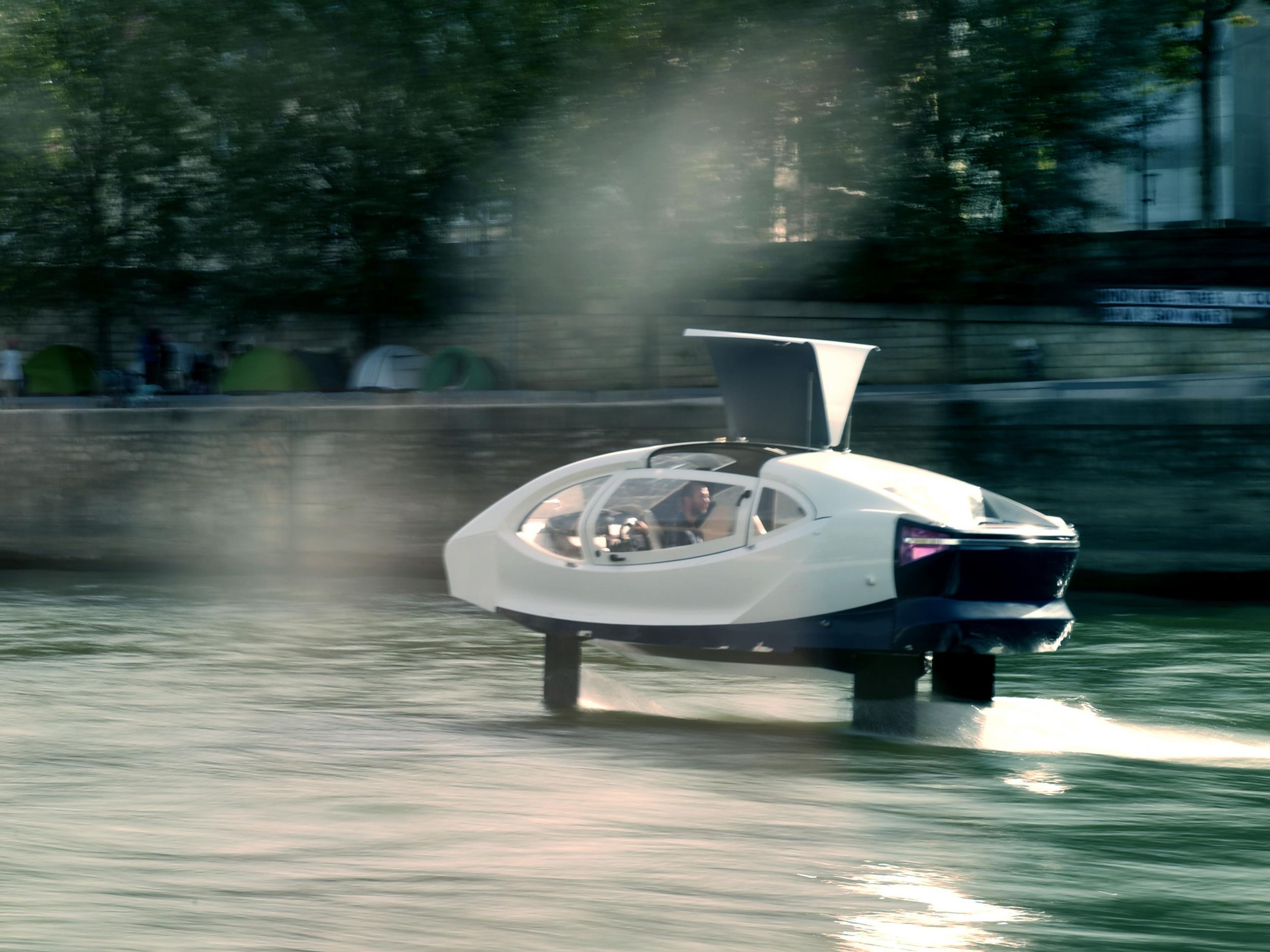'Flying taxi' stopped by police in Paris
Seabubbles says its unusual vehicle will reduce both traffic and pollution in cities
A “flying taxi”, dubbed the future of city transport, has been pulled over by police during tests along the River Seine in Paris.
The electric vehicle, developed by French startup Seabubbles, produces “no noise, no waves and no pollution” thanks to an innovative design that makes it appear as though it is hovering above the water. River police interrupted the tests over concerns it was going too fast.
“Our vehicle has the right to go at 30km/h, when normally the speed limit on the river is 12km/h,” SeaBubbles co-founder Anders Bringdal told The Independent. “So they just pulled us over to check our paperwork and make sure that all was in order.”
Seabubbles hopes its vehicles will help reduce road traffic by instead making use of rivers, lakes and other waterways in urban environments. By doing so, the startup claims it will be able to deliver people to their destinations “at car speed, for the price of a regular cab, with no impact on the environment nor on the city’s infrastructure”.
Promotional text on the firm’s website adds: “Think James Bond car, available for everybody, but with zero wave, zero noise, zero CO2 emissions”.
The startup hopes to introduce its vehicles to Paris next year, as well as cities in Holland and the US, with users potentially able to use an app to order them in the same way they would order an Uber or regular road taxi.
Mr Bringdal said there would be between 20 and 40 vehicles in each city, depending on whether an operator wants to use the 5-person Seabubbles primarily as water taxis or tourist vehicles.
It is not the only company attempting to transform urban transport, with several companies working on vertical take-off and landing (VTOL) vehicle concepts.
One of the most ambitious projects is being developed by Uber through its Elevate initiative, which it hopes
Other VTOL startups, including Lilium and AeroMobil, have also begun testing flying taxi concepts in an effort to offer a solution to overcrowded roads.

In France, Aircraft maker Airbus has been working with French transport operator RATP on a VTOL vehicle that could be brought to the skies over Paris in time for the 2024 Olympic Games.
A 10 million euro feasibility study is intended to make this new form of flying autonomous vehicle “accessible to the greatest number of people”, according to RATP.
But not everyone believes fleets of flying cars offer a viable solution to city transport issues. Serially successful entrepreneur Elon Musk claims that this method of transport poses a significant threat to the safety of people on the ground.
“There will be zillions of these things flying all over the place and, inevitably, somebody’s not going to service their car properly and they’re going to drop a hubcap and it’s going to guillotine somebody,” Musk said at an event last year.
Join our commenting forum
Join thought-provoking conversations, follow other Independent readers and see their replies
Comments
Bookmark popover
Removed from bookmarks